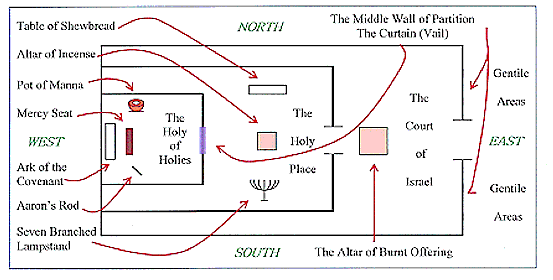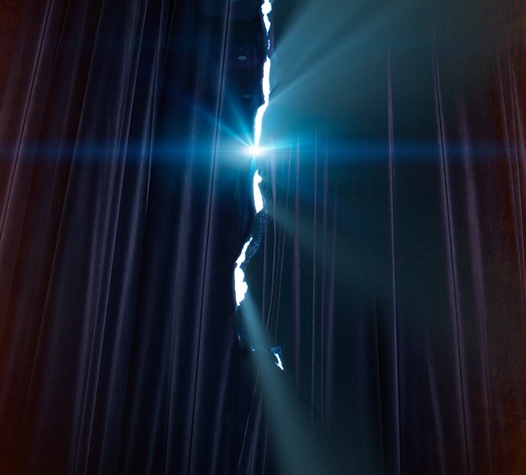
[Listen to an audio version here]
How do we know that we will make it ultimately to heaven? There are many things that could turn us aside and lead us astray. There are many challenges that we will face. How do we know that our destiny is secure?
Let’s put this another way. One way that people have often shared the Gospel is by asking, “If you died tonight, do you know for certain that you would be in heaven?” That question is designed to show them they need to receive Jesus as their Savior to be assured of eternal life.
But here’s another question. If you die 10 years from now, can you be sure that you’ll be in heaven? How do you know you’ll still be trusting in the Lord? Maybe you’ve never thought about it, but, once you think about it deeply, it can be rather disconcerting.
The answer to that question is what we want to explore today. We will see today one more amazing benefit of the cross: preservation. It is the assurance that God will not only give us salvation but also assures us that He will keep us in it forever, through all the difficulties and challenges of this life. The blood of the cross testifies that we are secure.
The Background of the Sacrifice
In the context of the Bible, Jesus’ death on the cross is the fulfillment of the temple and the sacrificial system. Whenever you read the Old Testament and see the temple or sacrifices, it is pointing forward to Jesus and His atoning death on the cross. As John the Baptist said, “Behold! The lamb of God who takes away the sin of the world.” Or, as Paul said, “Christ, our Passover lamb, has been sacrificed.”
When Israel left Egypt, God established a tent where He was to be worshipped that was called the “tabernacle.” Later, Solomon built a permanent dwelling called the temple. It was destroyed by Nebuchadnezzar, King of Babylon, and then rebuilt when the Jews returned to their land following the edict of King Cyrus the Great of Persia.
The temple consisted of four rooms. The first was the Court of the Gentiles. This place was where the people of the nations could come and worship. They could not enter the temple proper. The next room, the Outer Court, was where the Jewish people could enter to worship God. In that room, there was the bronze altar for sacrifice and bronze basin for washing. The third room, The Holy Place, was a room only the priests could enter. In it, there was the altar of incense, the table with the bread of the presence, and the menorah, the seven-branched candlestick continually burning. Finally, there was the Holy of Holies. Only the high priest could enter it and only once a year to make sacrifices on Yom Kippur, the Day of Atonement. This room contained the ark of the covenant, the great symbol and dwelling place of the presence of God in the Old Testament.
Now, to understand the temple, we should understand that the temple represents the universe, the cosmos. The Outer Court is the earth. The Holy Place represents the heavens. The Holy of Holies represents the throne room of God. It is above or beyond the heavens. We might think of the throne room of God as being in another dimension, using the terms of modern physics.
What the temple teaches us is to think of the world as the temple of God. We are here to see, enjoy, and worship God. However, our sin has brought division between us and God. The highest heaven is closed to us. We need it to be re-opened and heaven and earth united so that this world can be the holy temple to God that God intended it to be.
The work of the high priest pointed to a restoration of the world temple of God. The high priest entered the Holy of Holies once a year to make a sacrifice with the blood of another. This pointed to a restoration, but it had to be repeated, over and over again, every single year. What this means is that, “This is an illustration for the present time, indicating that the gifts and sacrifices being offered were not able to clear the conscience of the worshiper” (Heb. 9:9). We are looking for something better, and that is where Jesus and His cross come in.
The Fact of the Sacrifice
Jesus did not enter the Holy of Holies. He went into what it pointed to, the highest heavens, the throne room of God. “But when Christ came as high priest of the good things that are now already here, he went through the greater and more perfect tabernacle that is not made with human hands, that is to say, is not a part of this creation” (Heb. 9:11). He did not enter into a copy of the the throne room of God but the reality.
When He went, He brought a sacrifice but not the sacrifice of another. “He did not enter by means of the blood of goats and calves; but he entered the Most Holy Place once for all by his own blood, thus obtaining eternal redemption” (Heb. 9:12). Take note: this sacrifice, unlike the sacrifices of the Old Testament, obtains eternal redemption. The word redemption means payment. It is a full and complete payment that lasts forever. We will return to this point later.
The author of Hebrews contrasts Christ’s sacrifice on the cross to the animal sacrifices of the Old Testament. These sacrifices did serve a purpose. They needed to make them outwardly clean in order to participate in the temple worship. “The blood of goats and bulls and the ashes of a heifer sprinkled on those who are ceremonially unclean sanctify them so that they are outwardly clean” (Heb. 9:13). They had some effect but could not cleanse the conscience.
The author then uses this efficacy of the animal sacrifices to then make a comparison. “How much more, then, will the blood of Christ, who through the eternal Spirit offered himself unblemished to God, cleanse our consciences from acts that lead to death, so that we may serve the living God!” (Heb. 9:14). It is important to note the wording here. Christ was an unblemished sacrifice. He was a human being who did not sin. But He was more than a man. If he was a mere man, His death would not be sufficient to pay for the sins of the world. He would have to suffer for one person and suffer forever. That would not make a full or eternal redemption. However, He was the Son of God. He offered Himself through “the eternal Spirit.” It was His divine nature that gave the sacrifice infinite efficacy and value so that He could pay for the human race and do it in three days, rising again, showing that His sacrifice was fully accepted! We cannot not praise this sacrifice in any higher words! It is the sacrifice of God for men, but He could not make the sacrifice unless He was a man. That’s why it’s so important to understand the two natures in one person.
The Results of the Sacrifice
What does this sacrifice do? It cleanses the conscience. It gives a real answer to the conscience. The conscious accuses us of sin and is also corrupted because of sin. Thus, it needs a full cleansing. The blood of Christ cleanses us from the guilt and corruption of sin. That’s justification and sanctification! It says that the accusations no longer have effect and that we are now empowered to live a new life.
What is the result? “[S]o that we may serve the living God!” (Heb. 9:14). This word “serve” probably refers to the worship in the temple. The priests serve in His holy temple. We join that service. As it says in Heb. 12:28–29, “Therefore, since we are receiving a kingdom that cannot be shaken, let us be thankful, and so worship God acceptably with reverence and awe, for our ‘God is a consuming fire.'” We become worshippers in God’s true temple. This is true in our Sunday worship as we approach the true Mount Zion each week in church, and it is true throughout the week as we present our bodies as living sacrifices to the Lord. The world is the temple of the Lord, and we are called to observe His works and sing His praise. This is our calling each day, each week, and for the rest of our lives.
The author of Hebrews makes another point, though. This sacrifice restores us forever. “For this reason Christ is the mediator of a new covenant, that those who are called may receive the promised eternal inheritance—now that he has died as a ransom to set them free from the sins committed under the first covenant” (Heb. 9:15). Once we are called, Christ, through His terrible death on the cross, guarantees that those who are called receive the eternal inheritance. In other words, Christ’s death preserves us. Christ’s death keeps us. Christ’s death insures that we will make it to the end. This is part of His covenant or testament, the gift He bequeaths to us because of His death on the cross. This is one of the amazing benefits of the cross, we are His forever. If we are Christ’s, we can be sure that we will not only be His today but His forever.
Now, there are a couple of questions that arise in relationship to this teaching. First, isn’t it required for us to persevere? In other words, it’s not as if someone could once believe in Christ and then turn their back on Him and be saved, is it?
This is accurate. We must persevere. We must hold on to what we have been taught. We must not give up our hope. But here is what happens. Christ guarantees that we will persevere. He preserves us so that we persevere. Citing Jeremiah 31, the author of Hebrews says that in contrast to the unfaithfulness of Israel in the wilderness, God will make sure that we are faithful, “This is the covenant I will establish with the people of Israel after that time, declares the Lord. I will put my laws in their minds and write them on their hearts. I will be their God, and they will be my people” (Heb. 8:10). This promise the author of Hebrews applies to us, the true people of God, the true Israel of God. Christ’s death insures that all those who belong to this people will make it to the end and remain faithful.
The second question is, what about the warnings of falling away? Well, it is certainly true that people can fall away from the visible church after experiencing some of its blessings, but they were never true believers who had obtained the eternal inheritance. Hebrews has some of the most severe warnings in Scripture against falling away, yet it also says things like, “Even though we speak like this, dear friends, we are convinced of better things in your case—the things that have to do with salvation” (Heb. 6:9). And, “But we do not belong to those who shrink back and are destroyed, but to those who have faith and are saved” (Heb. 10:39). Those who have true faith and are called and heirs will not be lost but kept unto the end.
Conclusion
There are so many angles from which we can examine the cross. It is the center of human history and a source of endless wonder, a wonder that even the angels desire to look into.
In this series, we have seen that Christ’s terrible and agonizing death on the cross gets us amazing benefits. He pays everything, and we get everything. We are justified. This means we are declared righteous because of Jesus’ righteousness. We stand perfect and innocent before the throne of God, fully forgiven of all our sins. We are adopted. We not only are criminals who are pardoned, we become princes and princesses in God’s kingdom, exalted to the highest position. We are sanctified. We are delivered from the power of sin and made more and more able to live unto God and die to the ways of sin.
Today, we learn one more amazing benefit. Once we have all these things, Christ’s death preserves us in them. He who began a good work will carry it on unto completion. We don’t have to let the threat of persecution or sword or temptation or the devil make us fear that we won’t make it. Through the covenant established by the death of our mediator, we who are called will certainly and infallibly attain the eternal inheritance. That is an amazing benefit indeed. Thanks be to God for His indescribable gift!



